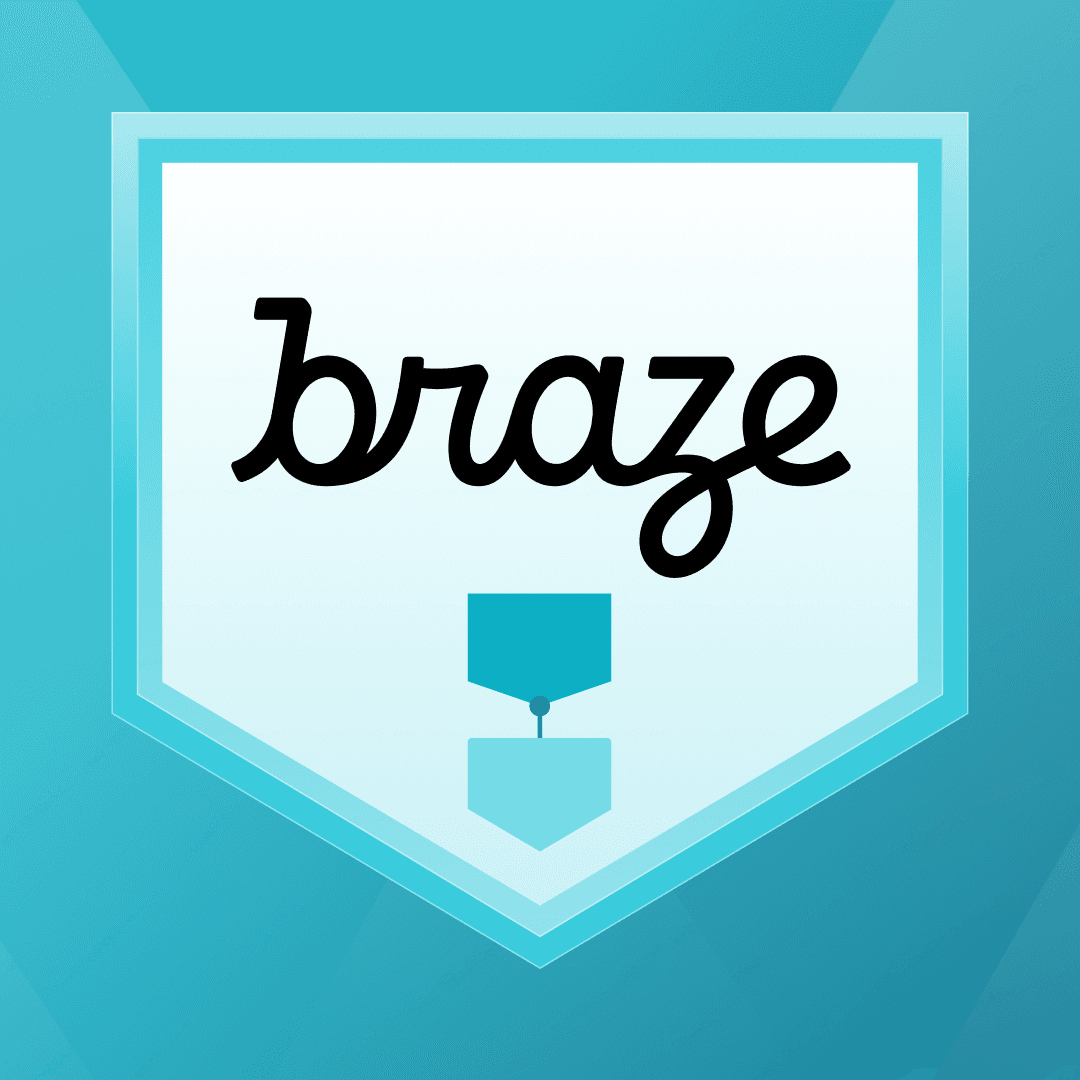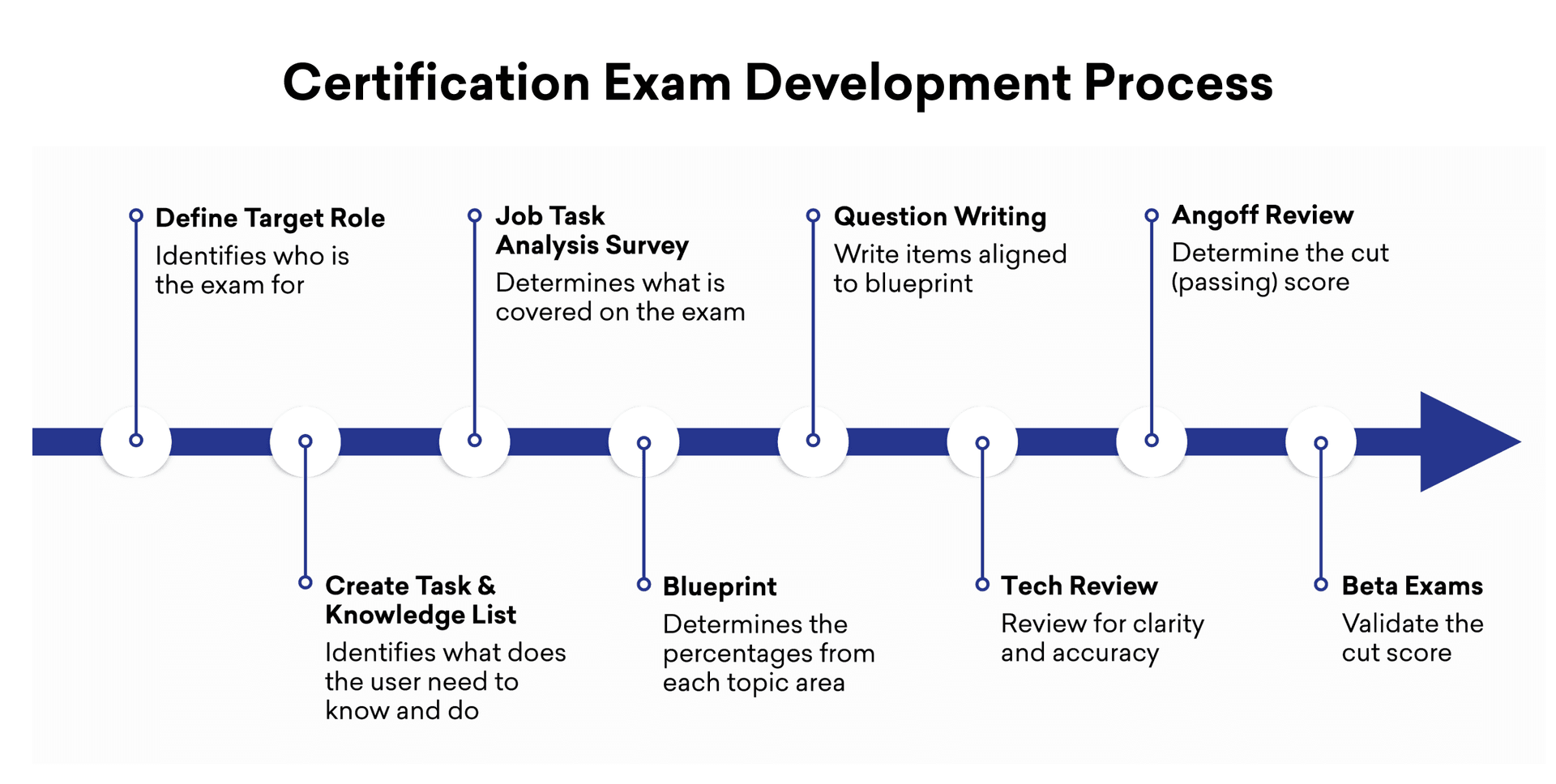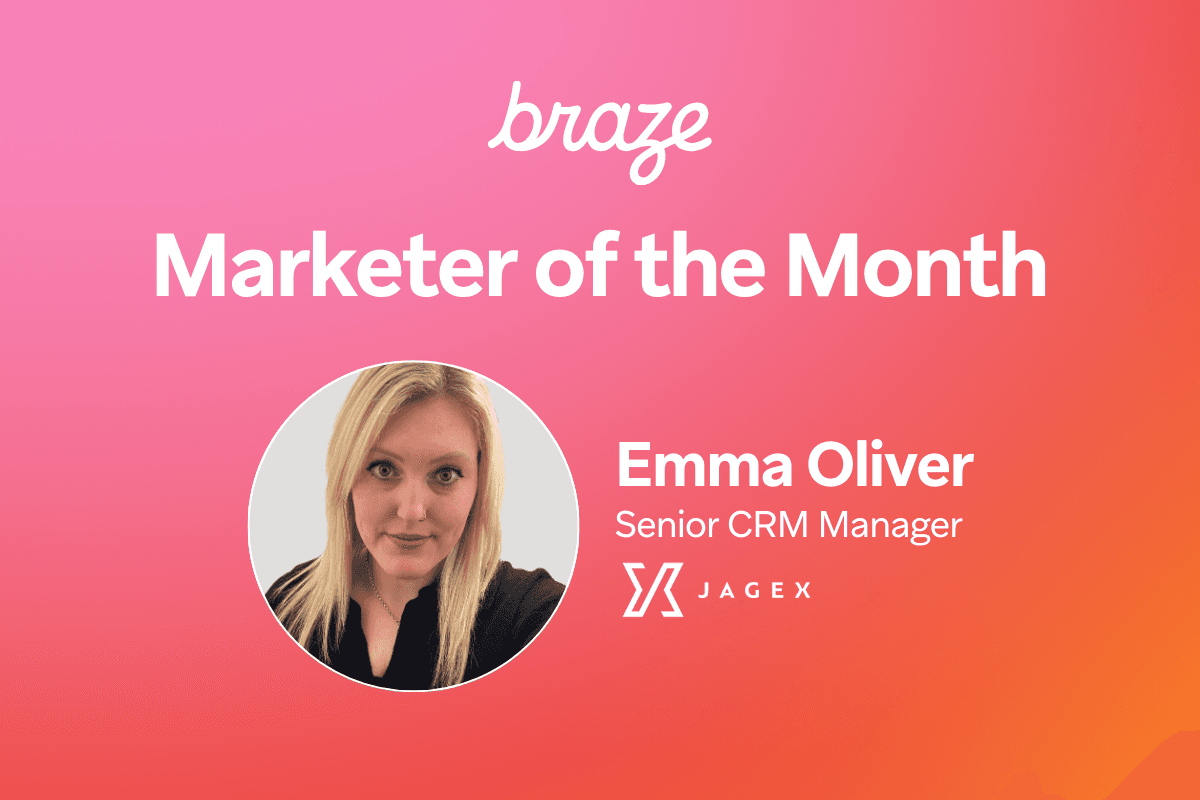The Power of Certifications: A Proven Vehicle for Career Capital
Published on April 26, 2021/Last edited on April 26, 2021/6 min read


PJ Bruno
Director, Customer Education, BrazeHow do you build a career? We all want our professional lives to go somewhere, ideally on an upward incline. But what that path looks like is often very different from person to person. Sometimes it means applying for a new position with your current company. Other times, it may mean leaving your current organization for a new opportunity at a different company.
But while recruiters and hiring managers assess potential hires across a range of different dimensions (e.g. attitude, experience, communication skills, accomplishments, etc.), there’s one thing that they tend to look for above all else: Namely, does the candidate have the skills needed to do the job? It’s normal for new hires to require some level of training, but ideally they should be joining with a core set of competencies needed to perform their role. And even with portfolios to examine and take-home tests to evaluate, it can be challenging to determine which candidates have what it takes and which ones don’t.
A college degree says very little about a candidate’s abilities in connection with a given role. A LinkedIn profile or resumé can give more context on an individual’s path and skill set, but they’re also vulnerable to manipulation or exaggeration—if I had a nickel for every time a candidate has written “Proficient with [insert professional software here]” on a resumé when they’ve only used it once or twice, I’d have enough money to buy the Philadelphia Eagles. But there are credentials that stand out, signaling not just proficiency, but a hunger to rise to tomorrow’s challenges: Namely, certifications.
What Makes Certifications More Impactful Than Other Skill Indicators
We’ve found that people commonly conflate certifications with trainings—so when they hear “certification programs” mentioned, they often picture training programs. But certification is actually all about skill assessment, with the goal of testing against the skills and knowledge needed to be proficient in a given role or with a specific tool or technology. And for a certification to be legitimate, that assessment needs to be both legally defensible and psychometrically sound.
What does that mean, in practice? “Back in 1999, the US Department of Labor published Testing and Assessment: An Employer's Guide to Good Practices, which now serves as the basis for defining legal defensibility when it comes to certifications,” says Debbie Smith, Manager, Customer Education at Braze and one of the architects of our certification initiative. “In short, it requires organizations to follow a standard process when it comes to the development, delivery, and evaluation of certification exams and says that the exams in question must be psychometrically sound—that is, both valid and reliable. Your exam has to test what it’s supposed to test and produce test scores for a given user that are consistent without the user doing any further training—and organizations have to be able to prove that this is the case using statistical analysis. Furthermore, the process for development has to be documented and must follow a consistent development process.”

As you can probably see, the certification development process needs to be thorough and ensure that the questions involved in the evaluation map directly to all the skills that individuals need in order to be proficient in a given role or with a particular tool.
This kind of highly targeted, comprehensive approach is a primary reason that digital certifications have become so essential today, allowing them to be seen in some cases as even more valuable than a college diploma. After all, even a bachelor’s from Harvard doesn’t necessarily make it clear if the recipient can actually build out an email marketing campaign, for instance, while a certification comes with specific earning criteria and the domains of speciality that accompanies the cert in question. In addition, certifications usually come with an expiration date and regularly updated exams to ensure that holders have maintained their mastery of ever-changing software.
What Certifications Look Like at Braze
Over the past couple of years, both training and certification have been very much on our minds here at Braze. Last year, we launched a very successful intimate, instructor-led virtual certificate program and this February we rolled out an official Braze certification program, beginning with our coveted Marketer Certification.
Obviously, we’re very excited at how quickly marketers and other folks in the customer engagement space have gravitated to our new certifications, but the impact we’re seeing on the ground goes beyond just sign-up. In fact, we’re already seeing strong associations between certifications and customer engagement. Over the past two months, certified Braze customers saw open rates for mobile and web push notifications that were more than double that of non-certified customers. In addition, certified customers saw email open rates that were more than 35% higher than non-certified customers. That’s a major difference, one that speaks to the level of skill associated with those holding Braze certifications.
While we’ve seen many customers get involved with our certification program, one brand in particular has gone further than any other when it comes to this new option, quickly moving to the head of the pack when it comes to embracing Braze certifications. That’s leading local delivery platform Delivery Hero, which has racked up an incredible 23 Braze-certified marketers and 2 Braze-certified admins—and counting!—since February. For a brand built around multiple sub-teams operating across four continents, Braze certifications have become a great equalizer, helping to ensure that all practitioners have the skills needed to make efficient, effective use of Braze to support Delivery Hero’s customer engagement programs.
“Being able to offer our teams the chance to become Braze certified provides a goal based upon their skills, and gives them another way to be recognized as the experts they are,” says Matt Dyson, Head of CRM Tech, Delivery Hero. “It sets a new bar in addition to campaign performance for those working with Braze.”
Well done, Team Delivery Hero! And no need to stop there—Braze has our Admin Certification in beta and be on the lookout for new SDK Integrator Certifications rolling out later this year.
Putting It All Together
Demonstrating skill and expertise can be a challenge for even the most impressive marketer; the truth is, you can’t always effectively show or easily explain the depth of what you’re capable of on a resume or in a job interview. That’s why digital certifications are so important in today’s business environment.
Plus, digital certification badges aren’t just a way to attain proof of your skills. By adding to your cache of digital accomplishments, you can demonstrate that you value personal and professional growth while also celebrating the acquisition of hard-won customer engagement abilities. Use it to boost your upward mobility at your current organization or find greener pastures elsewhere. The choice is yours.
To learn more about the certificate courses and certifications offered by Braze, check out this overview.
Related Tags
Be Absolutely Engaging.™
Sign up for regular updates from Braze.
Related Content
View the Blog
The new inbox reality: How iOS changes are reshaping email marketing

Aparna Prasad

Experience optimization: Turning data insights into better journeys

Team Braze

December 2025 Bonfire Marketer of the Month: Jagex’s Emma Oliver
